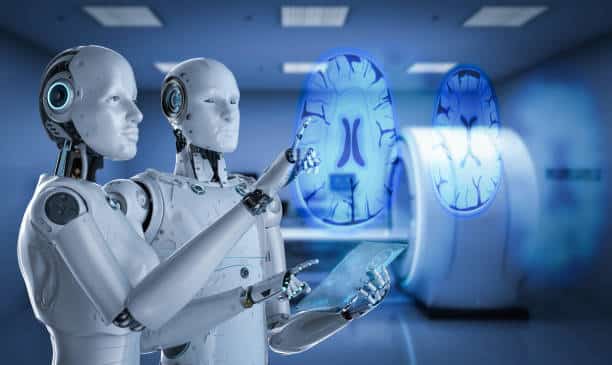Harnessing the Power of Radiology AI Software for Faster and Smarter Healthcare
Radiology plays a critical role in modern healthcare, enabling the diagnosis and monitoring of a wide range of medical conditions. However, the demands on radiologists have grown exponentially with the increasing volume of medical imaging studies.
To meet these challenges, the integration of artificial intelligence (AI) into radiology practices has become a game-changer. Radiology AI software has the potential to revolutionize healthcare by accelerating the diagnostic process, enhancing accuracy, and improving patient outcomes.
Accelerating Diagnosis
Radiologists face an ever-increasing workload due to the rising number of medical images generated by diagnostic imaging modalities such as X-rays, MRIs, and CT scans. The traditional manual review of these images is time-consuming and can lead to delays in patient care.
Radiology AI software helps address this bottleneck by automating the image analysis process. These AI algorithms can quickly and accurately detect abnormalities in medical images, significantly reducing the time it takes to diagnose patients.
Faster diagnoses can lead to quicker treatment decisions and improved patient outcomes, especially in critical cases like stroke or cancer.
Enhancing Accuracy
Radiologists are human, and like all humans, they are susceptible to errors, including fatigue and oversight. AI software doesn’t suffer from these limitations. It can analyze images with a high level of consistency, ensuring that no abnormality is overlooked.
By providing radiologists with AI-generated suggestions and highlighting potential issues, radiology AI software serves as a valuable second opinion, reducing the chances of misdiagnosis.
This combination of human expertise and AI assistance results in more accurate diagnoses and improved patient safety.
Personalized Medicine
Radiology AI software also has the potential to promote personalized medicine. By analyzing patient data and images, AI algorithms can help identify specific markers, patterns, or genetic variations that might influence a patient’s response to treatment.
This information can be invaluable in tailoring healthcare plans to individual needs, optimizing therapy, and minimizing adverse effects.
In the field of oncology, for instance, radiology AI can assist in identifying the most effective treatment options by analyzing tumor characteristics and monitoring their response to therapy.
Workflow Efficiency
Radiology departments are often overwhelmed with the sheer volume of images that need to be reviewed, making it challenging to manage the workload efficiently.
Radiology AI software streamlines the workflow by automatically prioritizing cases, flagging urgent findings, and routing routine cases to radiologists.
This ensures that the most critical cases receive immediate attention, reducing patient wait times and improving the overall efficiency of the healthcare system.
Telemedicine and Remote Consultations
The COVID-19 pandemic has accelerated the adoption of telemedicine and remote consultations. Radiology AI plays a vital role in these remote healthcare models by enabling the secure and rapid transfer of medical images for analysis.
Patients in remote or underserved areas can benefit from expert radiological assessment without the need for in-person visits. AI-powered image analysis can support healthcare providers in making timely decisions, reducing the burden on specialized medical centers, and enhancing accessibility to healthcare services.
Predictive Analytics
Radiology AI software can help identify patterns and trends in medical images, potentially predicting future health issues.
For example, AI can analyze a series of chest X-rays and alert healthcare providers to the early signs of chronic conditions like chronic obstructive pulmonary disease (COPD) or congestive heart failure.
By detecting these conditions at an earlier stage, patients can receive timely interventions and management, ultimately leading to better outcomes and reduced healthcare costs.
Radiology AI software is transforming the healthcare landscape by expediting the diagnostic process, enhancing accuracy, and promoting personalized medicine. With the integration of AI, radiologists can efficiently manage the increasing volume of medical images, reduce diagnostic errors, and provide more patient-centered care.
The potential applications of radiology AI are vast, from speeding up diagnosis and treatment decisions to enabling remote consultations and predicting future health issues.


























